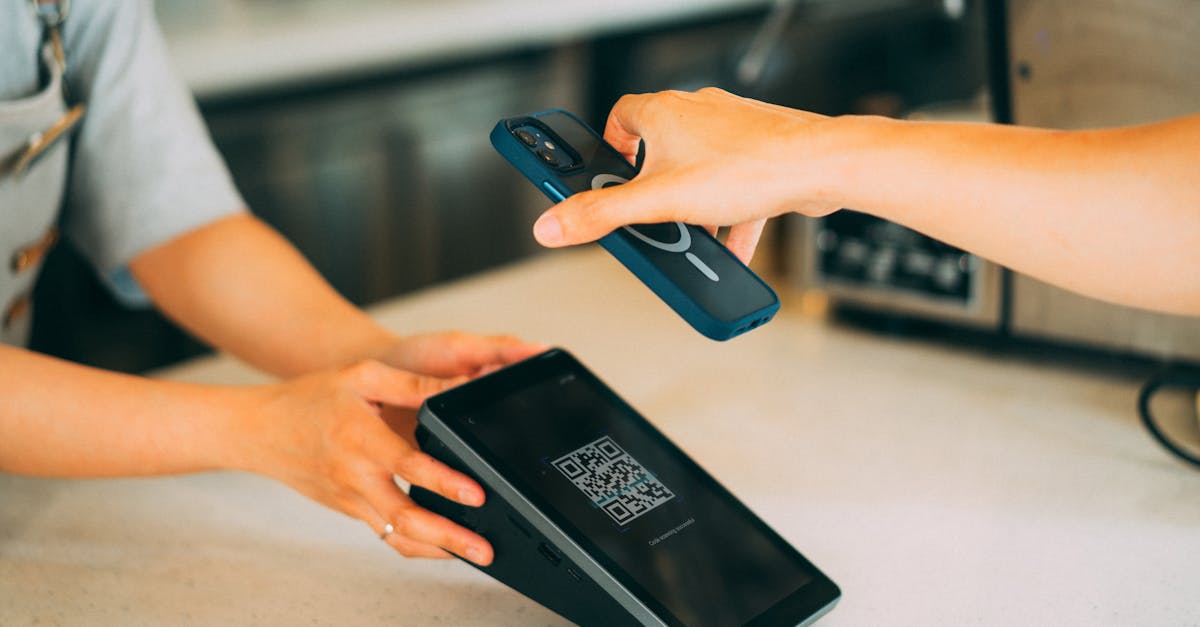In the fast-paced world of technology, time is of the essence. Every minute counts, and efficient time management can make all the difference in the success of a project. That's where time tracking comes into play. Understanding the importance of time tracking in the tech industry is crucial for professionals looking to optimize their productivity and achieve a better work-life balance.
Understanding the Importance of Time Tracking in Tech
Time tracking plays a vital role in project management, enabling tech professionals to monitor and analyze how they allocate their time. By accurately tracking the time spent on different tasks and projects, teams can better understand their workflow patterns, identify areas for improvement, and make informed decisions to enhance efficiency.

The Role of Time Tracking in Project Management
Project management is all about meeting deadlines, achieving milestones, and delivering high-quality results. Time tracking provides valuable insights into how time is being utilized throughout the project lifecycle. It allows project managers to monitor progress, allocate resources effectively, and keep the team on track. By identifying potential bottlenecks early on, time tracking enables proactive action to ensure successful project completion.
Benefits of Accurate Time Tracking for Tech Professionals
Accurate time tracking offers numerous benefits for tech professionals. Firstly, it allows for accurate project estimations, ensuring that deadlines are realistic and achievable. It also enables accurate client billing, ensuring that the time spent on each project is accounted for and invoiced accordingly.
But the benefits don't stop there. Accurate time tracking also helps in identifying unproductive activities or processes that can be optimized or eliminated altogether. For example, by analyzing the time spent on different tasks, tech professionals can identify if certain activities are taking longer than expected or if there are any unnecessary steps in their workflow. This leads to improved productivity and resource allocation within the tech team.
Additionally, accurate time tracking provides valuable data for performance evaluations and project evaluations. By having a clear understanding of how much time is being spent on each task, managers can assess individual and team performance more objectively. This data-driven approach allows organizations to identify areas of improvement, provide targeted training, and make informed decisions about resource allocation and project planning.
In conclusion, time tracking is not just a mundane administrative task; it is a powerful tool that empowers tech professionals and project managers to optimize their workflow, meet deadlines, and deliver successful projects. By accurately tracking time, tech professionals can gain valuable insights, improve productivity, and make data-driven decisions that ultimately contribute to the success of their projects and organizations.
Exploring Different Time Tracking Methods
When it comes to time tracking, there are various methods to choose from, each with its own pros and cons. Let's explore two popular methods: manual time tracking and automated time tracking.

Before diving into the specifics of these methods, it's important to understand the significance of effective time tracking in enhancing productivity and project management. Accurate time tracking not only helps in billing clients correctly but also provides valuable insights into how time is being spent on various tasks.
Manual vs. Automated Time Tracking
Manual time tracking involves recording time entries manually using spreadsheets or time tracking apps. While it offers a certain level of flexibility and control, it can be time-consuming and prone to human error.
On the other hand, automated time tracking uses specialized software that tracks time automatically based on active applications, mouse movements, and keyboard activity. This method offers convenience and accuracy, eliminating the need for manual input. However, it may require some setup and integration with existing systems.
Both manual and automated time tracking methods have their place in different work environments. Some individuals prefer the hands-on approach of manual tracking, allowing for more detailed notes and insights into their work patterns. In contrast, automated tracking is favored for its efficiency and ability to capture time seamlessly without interrupting workflow.
Time Tracking Software: What to Look For
Choosing the right time tracking software is crucial for seamless integration into your tech team's workflow. Look for software that offers features such as effortless time entry, integration with project management tools, and real-time reporting.
It's also essential to consider user-friendly interfaces, customization options, and compatibility with different operating systems and devices. Prioritize security and data privacy features, ensuring that sensitive information is protected.
Furthermore, when selecting time tracking software, consider the scalability of the solution. As your team and projects grow, the software should be able to accommodate increased data volume and additional features without compromising performance.
Implementing Time Tracking in Your Tech Team
Introducing time tracking to your tech team can be met with resistance or skepticism. However, with the right approach and communication, you can overcome these obstacles and foster a culture that embraces time tracking for increased productivity.

Steps to Introduce Time Tracking
Start by clearly communicating the benefits of time tracking to your team. Explain how it can help them optimize their workflow, improve project estimation, and ultimately achieve a healthier work-life balance.
Offer training and support to ensure that team members understand how to use the time tracking software effectively. Provide clear guidelines and expectations regarding time entry and reporting.
Regularly communicate the progress and benefits of time tracking implementation to keep your team engaged and motivated.
Overcoming Resistance to Time Tracking
Resistance to time tracking may stem from concerns about being overly monitored or the fear of increased pressure to meet unrealistic expectations. Address these concerns by emphasizing that time tracking is not about micromanagement, but rather about gaining insights and improving productivity as a team.
Encourage an open dialogue and listen to your team's feedback and suggestions. Actively involve them in the decision-making process when selecting time tracking methods or software. This will foster a sense of ownership and make them more invested in the process.
Furthermore, it is important to highlight the positive impact that time tracking can have on individual team members. By accurately tracking their time, they can identify areas where they may be spending too much or too little time, allowing them to make adjustments and work more efficiently. This can lead to a greater sense of accomplishment and job satisfaction.
Another benefit of time tracking is the ability to analyze historical data and identify patterns or trends. This data can be used to make informed decisions about resource allocation, project planning, and identifying areas for improvement. By leveraging this data, your tech team can become more agile and proactive in their approach to project management.
Optimizing Productivity with Time Tracking
Time tracking is not just about tracking hours; it's about optimizing productivity and achieving a better work-life balance. Let's explore how time tracking can enhance efficiency and improve the overall well-being of tech professionals.
How Time Tracking Enhances Efficiency
Time tracking provides visibility into how time is being spent, allowing tech professionals to identify time-wasting activities or unnecessary interruptions. By analyzing this data, individuals can make conscious efforts to eliminate or minimize distractions, prioritize tasks effectively, and allocate time more efficiently.
For example, let's say a software developer notices that they spend a significant amount of time attending unnecessary meetings. Armed with this insight from time tracking, they can proactively address the issue by either declining non-essential meetings or suggesting alternative ways to collaborate, such as using project management tools or scheduling shorter, more focused meetings.
Furthermore, time tracking helps improve task estimations. By reviewing past time tracking data, professionals can accurately estimate how long specific tasks or projects will take, allowing for better planning and allocation of resources.
Imagine a project manager who consistently underestimates the time required for certain tasks. With the help of time tracking, they can identify the patterns and adjust their estimations accordingly, ensuring that future projects are better planned and executed.
Time Tracking and Work-Life Balance in Tech
In the tech industry, achieving a healthy work-life balance can be challenging. Time tracking can help tech professionals gain better control over their time and avoid burnout. By tracking time accurately, individuals can identify areas where they are overworking and take necessary steps to achieve a more balanced lifestyle.
For instance, a data scientist who regularly works late into the night might discover through time tracking that they are spending excessive time on non-essential tasks. Armed with this knowledge, they can delegate or automate certain tasks, freeing up more time for personal activities and relaxation.
Moreover, time tracking can facilitate effective time management, allowing tech professionals to dedicate time to personal interests, hobbies, and self-care. This balance not only improves overall well-being but also enhances creativity and productivity in the long run.
Consider a UX designer who enjoys painting as a hobby. By tracking their time, they can allocate specific hours each week to indulge in their artistic passion. This not only provides a much-needed break from work but also fuels their creativity, leading to fresh ideas and innovative designs.
In conclusion, time tracking goes beyond mere hour-counting. It empowers tech professionals to optimize their productivity, make informed decisions, and achieve a healthier work-life balance. By leveraging the insights gained from time tracking, individuals can unlock their full potential, both professionally and personally.
Future Trends in Time Tracking for Tech
As technology continues to evolve, so too does time tracking for tech professionals. Let's take a glimpse into some future trends that will shape the landscape of time tracking in tech.
The Impact of AI on Time Tracking
Artificial Intelligence (AI) has the potential to revolutionize time tracking. With AI-powered tools, time tracking can be automated to a greater extent, reducing manual input and providing more accurate data. AI algorithms can analyze patterns, identify inefficiencies, and provide personalized insights to improve productivity further.
The Evolution of Time Tracking Tools in Tech
The future of time tracking tools in tech will focus on seamless integration with existing software and devices. Mobile apps and wearables will play a significant role, allowing tech professionals to track time effortlessly on the go. In addition, time tracking tools will become more customizable, adaptable, and intuitive, catering to individual preferences and workflows.
With the increasing demands of the tech industry, time tracking has become an indispensable tool for professionals seeking to optimize their productivity, ensure project success, and achieve a healthy work-life balance. By embracing the right time tracking methods and software, tech teams can unlock their full potential, fostering a culture of efficiency and continuous improvement. As technology continues to advance, the future of time tracking for tech professionals looks promising, enabling even more accurate and personalized insights to support their growth and success.
Ready to take your pool service business to the next level with the precision of time tracking? ProValet is here to transform your operations, offering a tailored solution that respects the uniqueness of your company while enhancing efficiency, revenue, and customer communication. With features like automated scheduling, dispatching, invoicing, and the innovative Homeowner app, ProValet is designed to streamline your workflow and foster stronger client relationships. Experience the difference with our easy data migration, user-friendly tech app, and financial benefits like faster invoice payments. Don't miss out on the opportunity to elevate your business. Schedule your 15 minute Discussion & Demo today and witness firsthand how ProValet can revolutionize your pool service enterprise.








